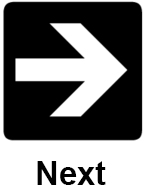Copyright Bootcamp
Section 1 of 7
 The subject of copyright can be daunting. The topic is closely associated with risk management and making an informed, and justifiable decision. Many of us would prefer a yes/no scenario, but that's not how copyright works. In order to make an informed decision you need to have some level of understanding of copyright. This bootcamp is intended to provide that. Not everyone needs to be a legal expert, but anyone who intends to create new work or use someone else's work needs to be aware of copyright.
The subject of copyright can be daunting. The topic is closely associated with risk management and making an informed, and justifiable decision. Many of us would prefer a yes/no scenario, but that's not how copyright works. In order to make an informed decision you need to have some level of understanding of copyright. This bootcamp is intended to provide that. Not everyone needs to be a legal expert, but anyone who intends to create new work or use someone else's work needs to be aware of copyright.
Copyright can guide us when using using other people's work but it also empowers us by suggesting new ways to disseminate and promote our own work.
You can work through the tutorial step-by-step using the navigation arrow on the right or the links at the bottom of each screen.
The tutorial includes several questions and the answer to each question will be revealed when you make your selection. These are designed to reinforce your understanding. Your use of the tutorial and your responses to the questions are not recorded.
This tutorial will guide you through some of the issues associated with copyright and point you towards resources that can assist you in this process. It should take you about 20 minutes to complete. The sections are:
What is copyright?
Copyright is literally the legal 'right to copy'. Copyright exists in any original, literary, dramatic, musical or artistic works, sound recordings or films that you create. For example: an artistic work, a design, a photograph, a journal article or the content for a book. There is no need to do anything specific to register copyright - the legal right comes into existence as soon as an original work is created.
Copyright law prohibits the making and sharing of copies of a protected work (by photocopying, cutting and pasting, distributing copies via the internet or any other means) by anyone who does not have the legal right to do so.

